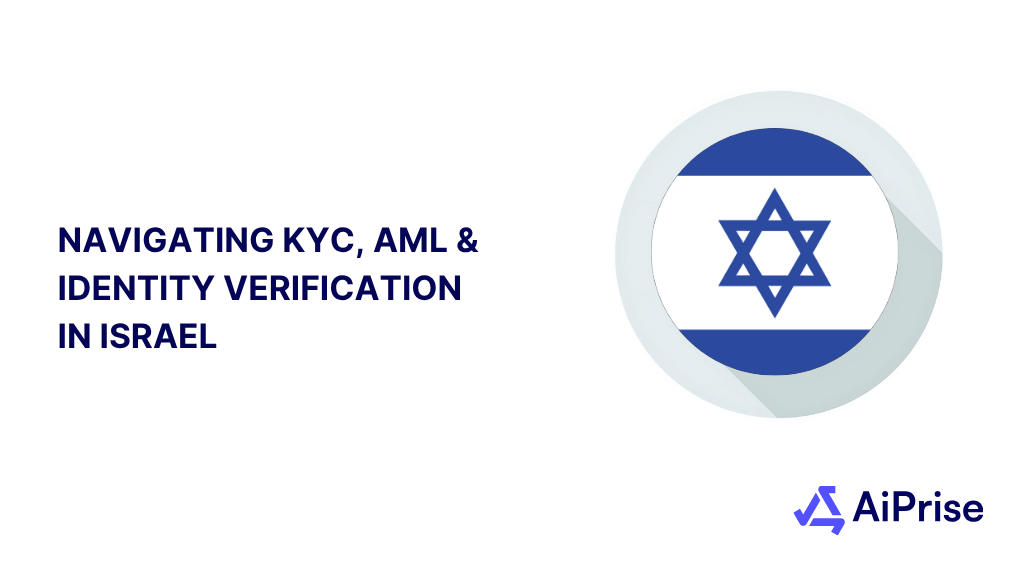AiPrise
10 min read
October 29, 2025
Understanding Identity Management in KYC Processes

Key Takeaways










Onboarding customers has never been more challenging. Businesses are under constant pressure to verify identities quickly while meeting strict regulatory standards. A recent survey by the American Bankers Association found that 69% of banks identified identity verification and fraud prevention as their top compliance challenge in 2024. This statistic highlights the growing tension between customer experience and compliance obligations.
Identity management within KYC processes sits at the heart of this challenge. It’s more than checking a passport photo or a driver’s license number; it’s about building a reliable system that confirms people are who they claim to be and keeps monitoring them over time. By understanding how identity management works in KYC, you can reduce fraud, stay compliant, and build trust with your customers.
Key Takeaways
- Identity Management in KYC verifies customer identities using documents, biometrics, and continuous monitoring to prevent fraud and ensure compliance.
- KYC Regulations enforce identity verification, ongoing checks, and risk assessments to comply with legal standards and minimize risks.
- Key Components include document checks, biometrics, address validation, and risk profiling for secure, compliant identity management.
- Benefits include faster onboarding, lower fraud risks, stronger compliance, and increased customer trust through reliable identity verification.
What Is Identity Management in KYC?
Identity management in KYC refers to the methods businesses use to confirm, authenticate, and maintain accurate customer identities over time. It ensures that compliance checks are not just performed during onboarding but continue throughout the customer relationship.
To understand the connection between identity management and KYC, here’s how the two work together:
- KYC provides the framework: Regulatory rules that require businesses to know their customers and assess risks.
- Identity management provides the tools: Systems that verify documents, authenticate biometrics, and manage updates.
- Together, they create assurance: Businesses can reduce fraud risk while maintaining compliance and customer trust.
In short, identity management acts as the main component of KYC, turning regulatory requirements into practical, repeatable actions. To fully grasp how these elements connect, let’s look into the way KYC rules shape identity management practices.
Also read: Continuous KYC: Transforming Customer Compliance Monitoring
How Do KYC Rules Impact Identity Management?
KYC rules directly shape how you manage identities, requiring accurate verification, continuous monitoring, and strict compliance across all customer interactions. Following these rules ensures your business reduces risk, prevents fraud, and maintains trust with regulators and clients.

- Verification Framework: KYC rules dictate the type and depth of identity checks you must perform:
- Confirm personal details with government-issued IDs like passports, driver’s licenses, or national IDs.
- Validate addresses through utility bills, bank statements, or reliable digital sources.
- Authenticate identities using biometrics such as facial recognition, fingerprints, or voice patterns.
- Lifecycle Management: Compliance requires that identity management covers the entire customer journey:
- Collect and store accurate information during onboarding to build a solid identity record.
- Perform periodic re-verification or monitoring to ensure data stays up-to-date.
- Track any changes in risk profile or suspicious activity for ongoing review.
- Security Layer: KYC rules enforce protective measures to safeguard sensitive identity data:
- Restrict access to personal and financial information only to authorized personnel.
- Detect and prevent unauthorized logins, identity theft, and fraud attempts.
- Implement encryption and secure storage to comply with privacy and regulatory standards.
- Compliance Driver: KYC regulations translate into actionable steps for identity management systems:
- Automate checks to ensure all required verifications are completed before onboarding.
- Generate audit-ready reports that demonstrate regulatory adherence.
- Maintain comprehensive records to satisfy periodic inspections or regulatory inquiries.
With a solid understanding of these requirements, let’s examine the key components that comprise a well-rounded identity management system.
Key Components of Identity Management in KYC
Identity management in KYC covers several processes that help you verify customers while staying compliant and reducing risk. Each part plays a role in keeping your business secure and trustworthy. Understanding these components lets you build systems that make onboarding smoother and safer for everyone.

1. Document Verification
Document verification helps you confirm your customer’s identity using passports, driver’s licenses, or government-issued IDs. It also spots fake, expired, or tampered documents, preventing fraudulent accounts from slipping through. By checking documents carefully, you can protect your business and keep regulators satisfied.
2. Biometric Authentication
Biometric authentication allows you to verify people using their face, fingerprint, or voice patterns for added security. These unique features are hard to fake, making your verification process more reliable than passwords or codes. Using biometrics gives you confidence that the person you’re onboarding is actually who they claim to be.
3. Database Checks
Database checks let you cross-reference your customers’ information with global watchlists, sanctions lists, and politically exposed person records. This ensures you’re not working with high-risk individuals or businesses flagged for illegal activity. Running these checks helps you stay compliant while avoiding unnecessary risks.
4. Address Verification
Address verification makes sure your customer actually lives where they say, using utility bills, bank statements, or digital sources. Confirming this detail helps keep your identity records accurate and trustworthy. You’ll reduce errors and false identities while staying in line with compliance rules.
5. Risk Profiling
Risk profiling helps you understand your customer’s financial behavior and assign a risk score for monitoring. Higher-risk profiles get more attention, so you can respond to unusual activity quickly. This lets you protect your business without slowing down honest customers.
By putting these components together, you create a strong identity management process that keeps your customers safe and your business compliant. Next, you’ll see the benefits you gain from having solid identity management in your KYC processes.
Also read: Understanding KYC Verification Safety and Prevention Steps
Benefits of Identity Management in KYC
Identity management in KYC provides measurable advantages that help you reduce risk, improve compliance, and maintain smoother operations. Here’s how these benefits come into play for your business:

- Faster Onboarding: You can verify customers quickly using automated checks, reducing delays and keeping new clients engaged.
- Reduced Fraud Risk: Cross-referencing documents, biometrics, and risk scoring helps identify suspicious activity before it impacts your business.
- Better Compliance: Maintaining accurate verification and continuous monitoring keeps your business aligned with KYC and AML regulations.
- Improved Customer Trust: Customers feel more confident sharing information when they see secure and transparent verification processes.
- Operational Efficiency: Automation minimizes manual work, allowing your team to focus on higher-priority tasks and maintain consistent quality.
These benefits combine to strengthen your KYC process, protecting both your business and your customers. The next section will highlight common challenges in identity management and how to address them.
Also read: How Identity Verification Enhances KYC Compliance
Challenges in Identity Management in KYC
While identity management in KYC brings many benefits, it also comes with challenges that you need to address carefully. These obstacles can affect compliance, security, and customer experience if not managed properly:
- Data Privacy and Cross-Border Rules: You must handle identity data according to different countries’ privacy laws, which can restrict sharing and storage.
- Fragmented ID Standards: Each region has unique ID formats and verification requirements, making global compliance more complex.
- Fake or Synthetic Identities: Fraudsters use stolen or fabricated data, requiring stronger detection tools to spot anomalies quickly.
- Document Tampering: Edited or forged documents can bypass weak verification processes, increasing the risk of onboarding fraudulent customers.
- Expired or Outdated Information: Maintaining up-to-date documents and re-verifying customers regularly is operationally demanding.
- Balancing Security and Customer Experience: Excessive checks may frustrate users, while insufficient checks can expose your business to risk.
- Legacy System Limitations: Older systems may not integrate easily with modern identity management tools, slowing down verification workflows.
The next step is understanding how businesses can manage these challenges and still meet KYC requirements.
How Can Businesses Become KYC Compliant?
Becoming KYC compliant means following regulatory rules, verifying customer identities thoroughly, and keeping accurate records throughout the relationship. These steps help you avoid fines, reduce fraud, and maintain customer trust:
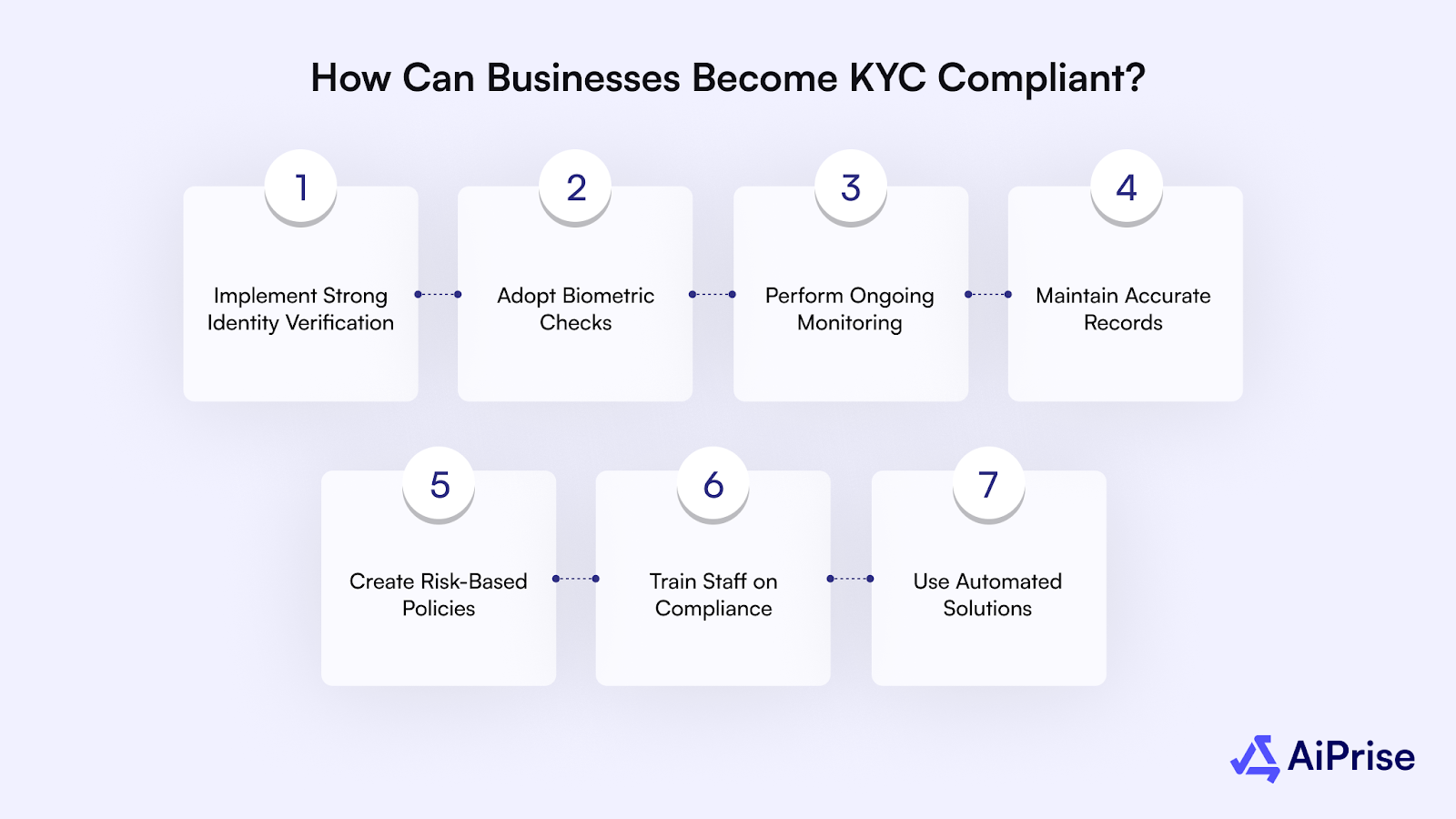
- Implement Strong Identity Verification: Use reliable tools to verify government-issued IDs, addresses, and other personal information before onboarding.
- Adopt Biometric Checks: Incorporate facial recognition, fingerprint scanning, or voice verification to confirm the customer is who they claim to be.
- Perform Ongoing Monitoring: Continuously screen customers against global sanction lists, watchlists, and politically exposed person (PEP) databases.
- Maintain Accurate Records: Keep detailed, up-to-date identity records to show compliance during audits or regulatory checks.
- Create Risk-Based Policies: Adjust verification depth based on customer risk profiles, focusing more attention on higher-risk accounts.
- Train Staff on Compliance Procedures: Ensure your team understands KYC rules, verification processes, and how to handle suspicious activity reports.
- Use Automated Solutions: Platforms like AiPrise provide AI-driven identity verification and fraud detection, helping businesses meet KYC requirements faster.
To see how businesses can keep pace with these demands, it’s important to look at some of the advanced tools that can help.
How AiPrise Strengthens Identity Management and KYC Compliance?
AiPrise offers an advanced platform for identity verification, KYC, and AML compliance. By integrating AI and machine learning, the solution enables businesses to prevent fraud, maintain regulatory compliance, and streamline verification processes, resulting in faster, more secure, and reliable operations across global markets.
Key features of AiPrise include:
- Government Verifications: The platform integrates with government databases, verifying customer identities against official records to reduce the risk of fraud.
- Document Insights: AiPrise’s AI technology extracts and analyzes document data, ensuring only valid documents are accepted.
- One-Click KYC: AiPrise streamlines KYC verification with a seamless one-click process, accelerating onboarding while ensuring compliance.
- Case Management: AiPrise’s easy-to-use case management system helps businesses track and resolve suspicious activities promptly.
- Watchlist Screening: AiPrise screens clients and transactions against global sanction lists to identify high-risk individuals and ensure compliance with relevant regulations.
- Onboarding SDK: The platform integrates seamlessly into existing systems, enabling businesses to perform KYC and AML checks during the customer onboarding process.
- Automated Workflows: AiPrise enables businesses to create automated workflows for consistent, error-free compliance processes.
- Reverification: AiPrise allows businesses to periodically reverify customer data, ensuring ongoing compliance and identifying changes in risk profiles.
- AI-Powered Compliance Copilot: AiPrise’s AI Copilot accelerates compliance reviews by 95%, enhancing operational efficiency and enabling faster meeting of regulatory requirements.
With these capabilities, AiPrise enables businesses to stay ahead of fraud, meet regulatory requirements, and improve workflow efficiency. The platform ensures that identity management and KYC processes are not just compliant but also scalable, secure, and user-friendly.
Final Thoughts
Understanding identity management in KYC processes is critical for businesses handling financial transactions. Effective systems handle customer identification, ongoing monitoring, ensure compliance, prevent fraud, and maintain trust. Without them, organizations risk regulatory penalties, financial loss, and reputational damage.
To strengthen your KYC framework, AiPrise offers advanced tools that streamline identity verification, ensure AML compliance, and reduce fraud risks. These solutions help businesses operate securely, efficiently, and with confidence across global markets.
Ready to protect your business and simplify compliance? Book A Demo today to see how AiPrise’s KYC and identity management solutions can safeguard your organization and enable seamless onboarding.
FAQ
1. What is a KYC identity?
KYC (Know Your Customer) identity refers to the process of verifying the identity of a customer to prevent fraud and ensure compliance with regulations. It typically involves collecting personal information, such as government-issued IDs and proof of address, to confirm the individual’s identity. This process helps financial institutions and businesses safeguard against money laundering and other illicit activities.
2. What is CIP vs CDD vs EDD?
CIP (Customer Identification Program) is a foundational process to confirm the identity of customers before establishing a business relationship. CDD (Customer Due Diligence) involves assessing the risk of a customer, which helps businesses understand potential threats from fraud or illegal activities. EDD (Enhanced Due Diligence) is a deeper, more thorough investigation conducted for high-risk customers to ensure their activities align with legal standards.
3. What are the 5 stages of KYC?
The five stages of KYC include: Customer Identification, where you provide personal details for verification. Risk Assessment, where the institution evaluates potential risks associated with your profile. Following this, Due Diligence is conducted, which gathers more information to assess your financial behaviors and source of funds. Monitoring involves ongoing surveillance of your activities to detect any suspicious behavior. Finally, Reporting ensures that any red flags or suspicious activities are communicated to relevant authorities.
4. How to submit KYC identity verification?
To submit KYC identity verification, you’ll need to provide personal documents, such as your ID, proof of address, and sometimes a selfie or video. These documents are uploaded to the platform's secure verification system, which checks your details against government databases. After submitting, the platform will review your information and confirm your identity within a certain timeframe.
5. Can I do KYC verification online?
Yes, KYC verification can be done online with many financial platforms offering secure digital verification processes. You typically upload your identity documents via a secure portal and may be required to take a selfie or perform a live video verification. Once submitted, the platform verifies your details and confirms your identity through a digital process.
6. Is KYC verification safe?
KYC verification is safe when conducted through reputable platforms that use encryption and data protection measures. These security protocols ensure that your personal information remains confidential and secure during the verification process. Financial institutions and payment providers also implement strict compliance rules to safeguard your identity and prevent unauthorized access.
You might want to read these...

AiPrise’s data coverage and AI agents were the deciding factors for us. They’ve made our onboarding 80% faster. It is also a very intuitive platform.





Speed Up Your Compliance by 10x
Automate your compliance processes with AiPrise and focus on growing your business.




.jpg)


















.jpeg)


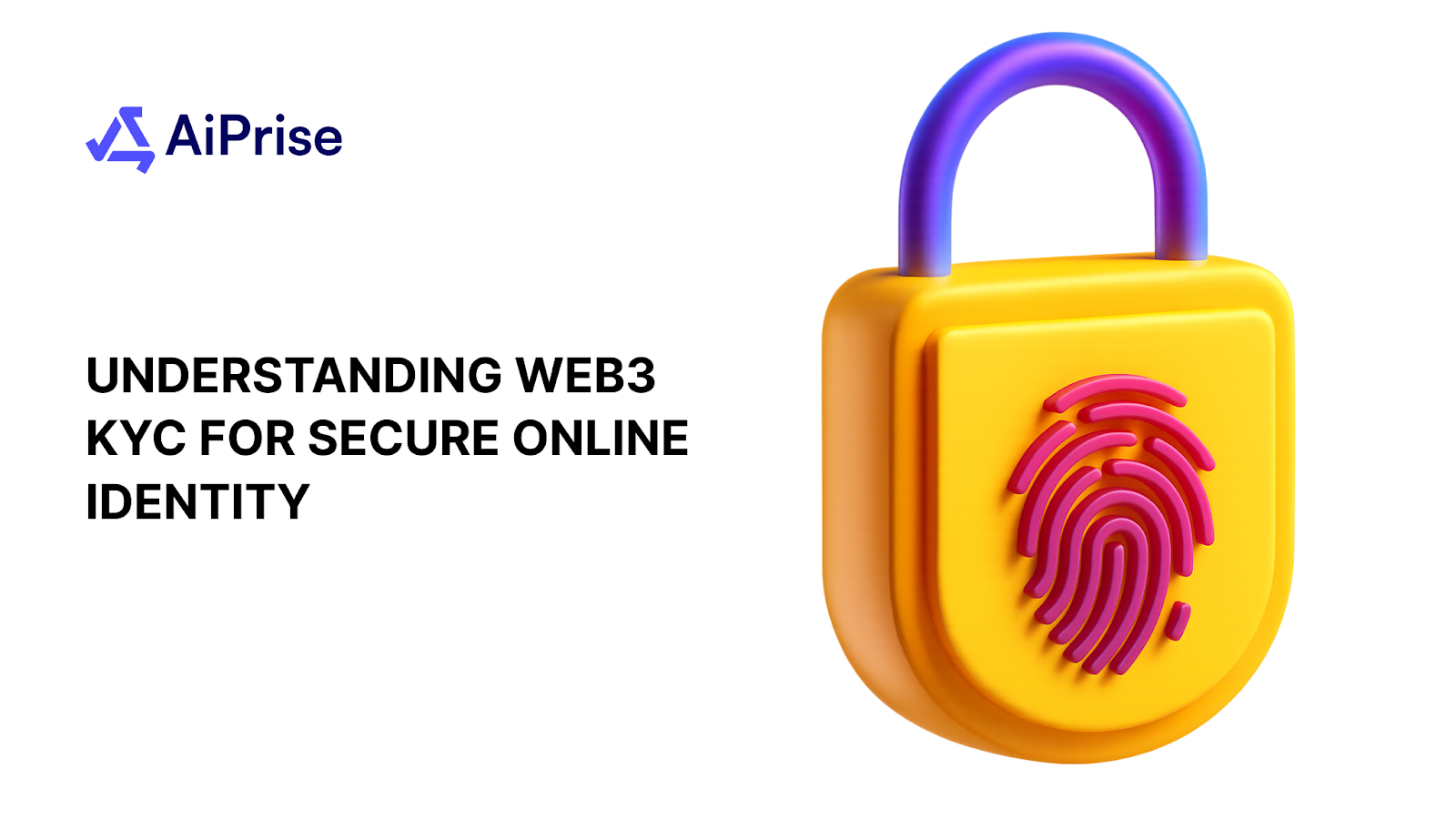
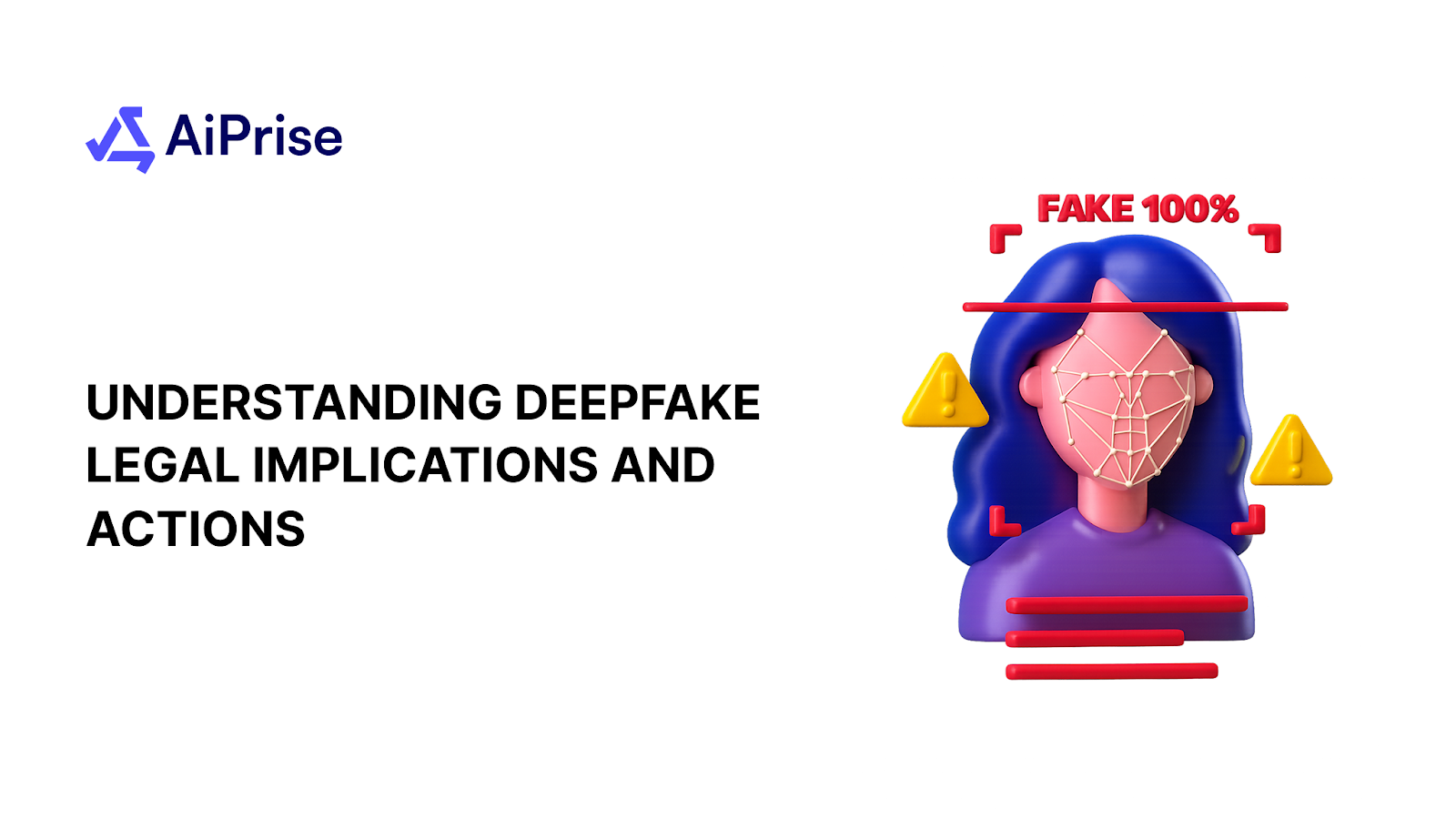
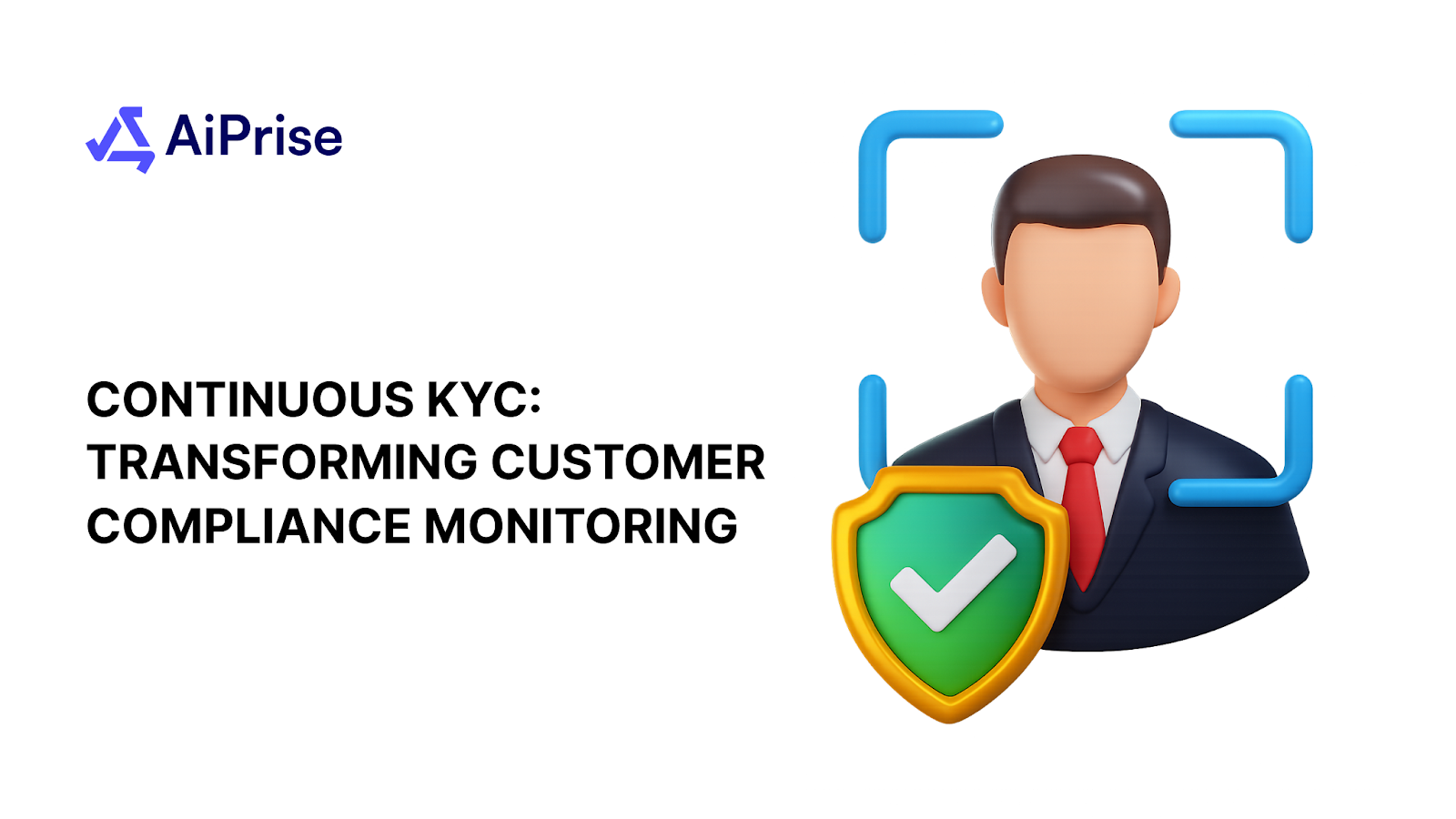
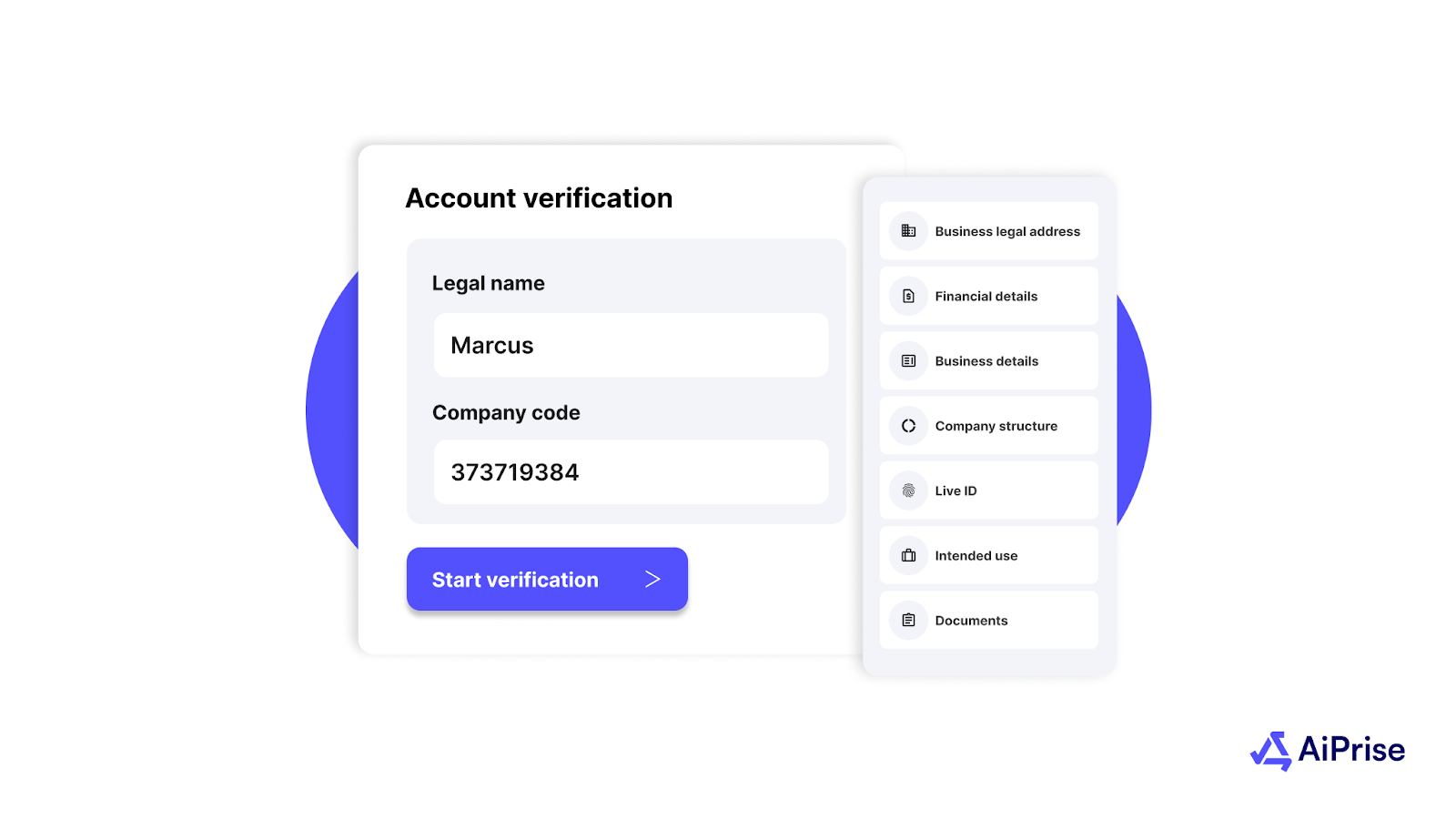
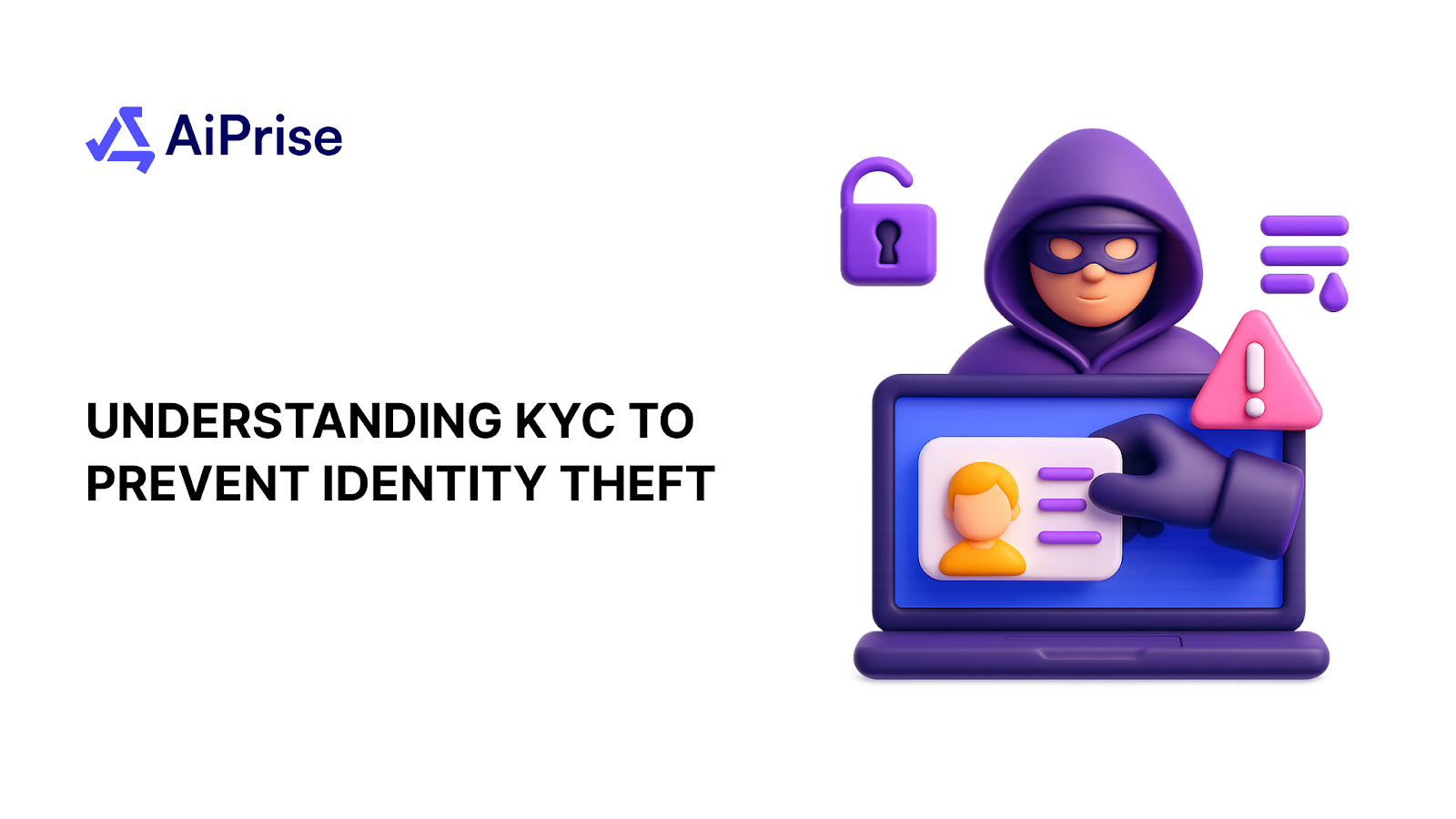


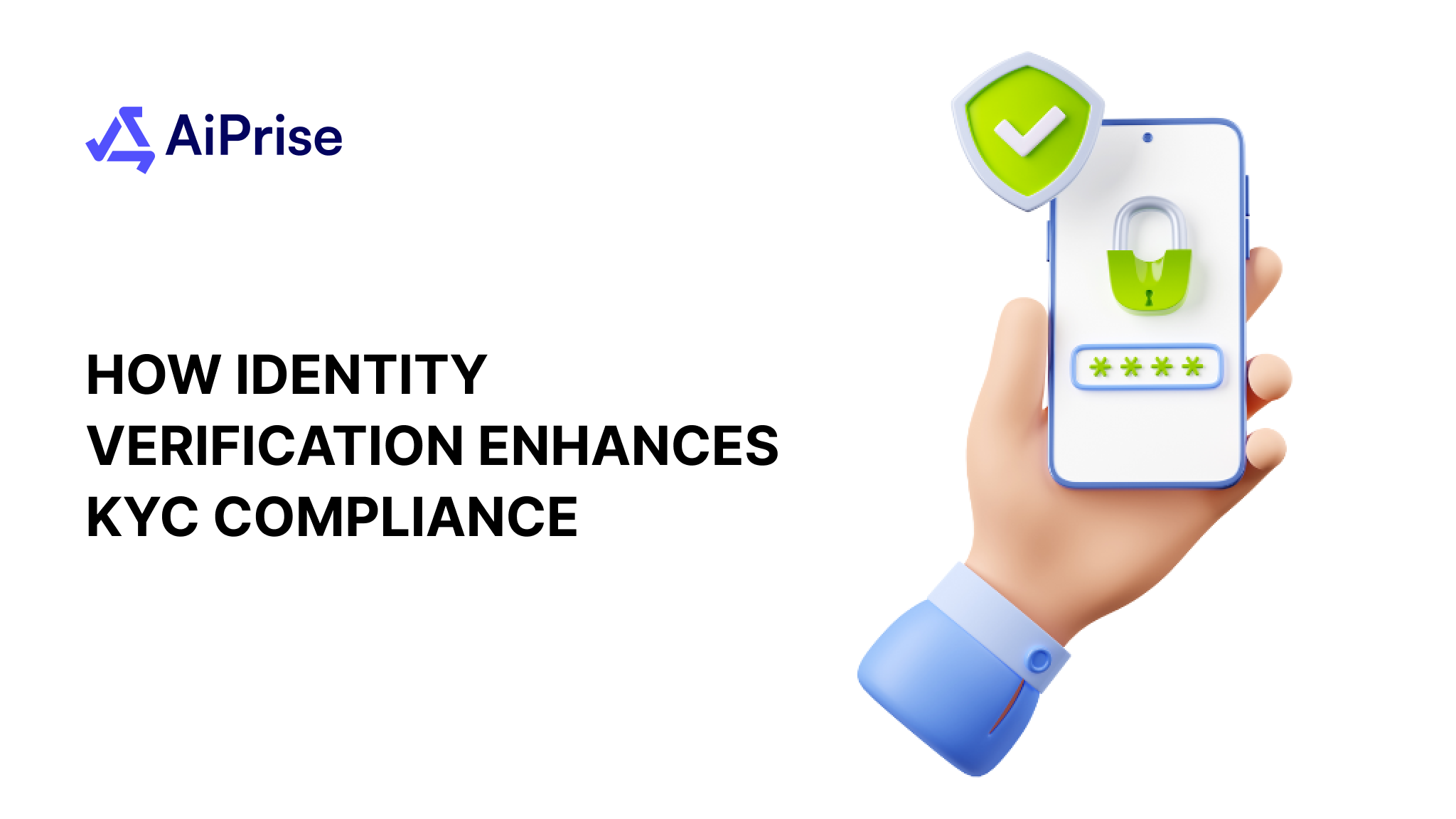

.png)

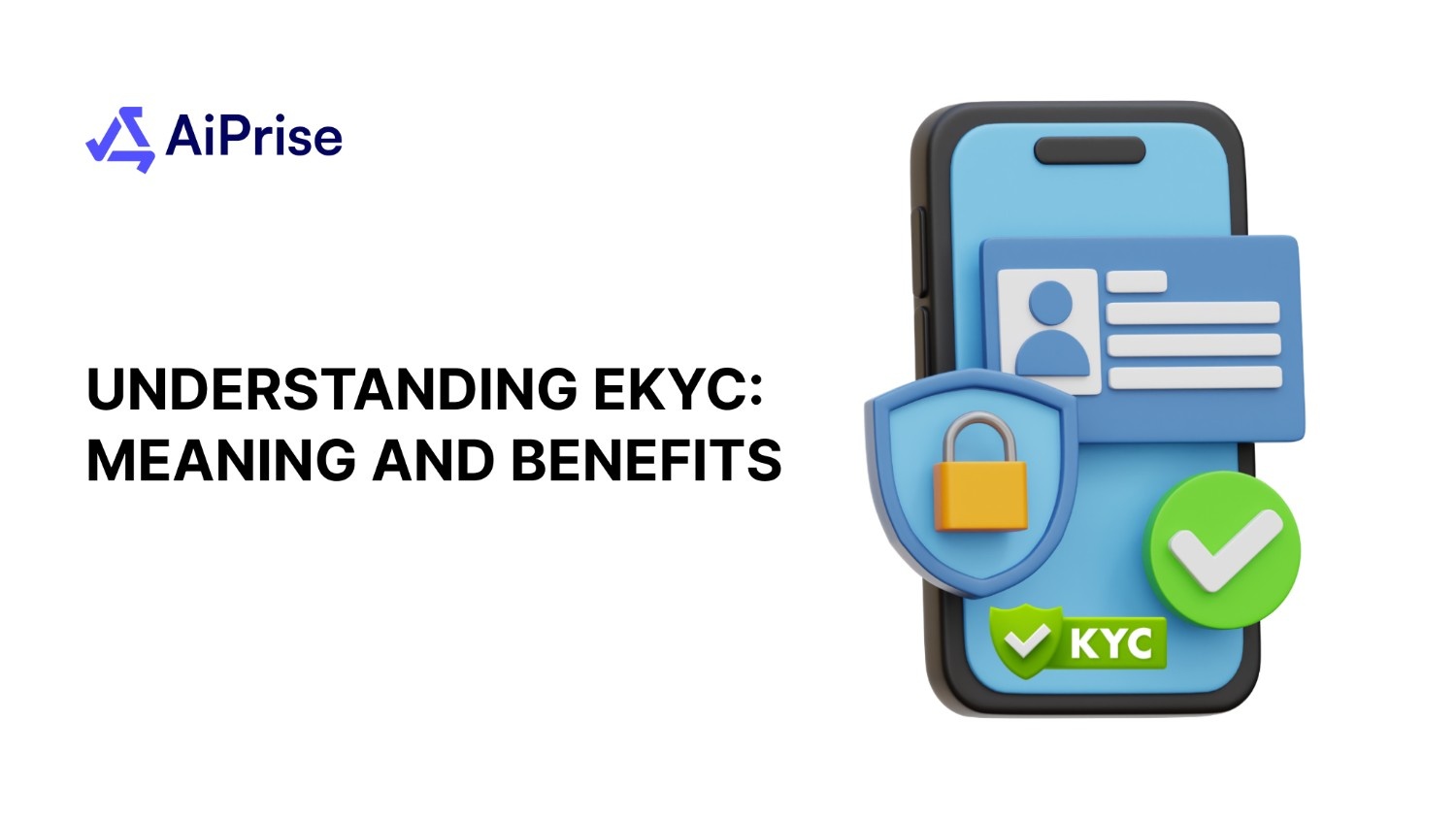
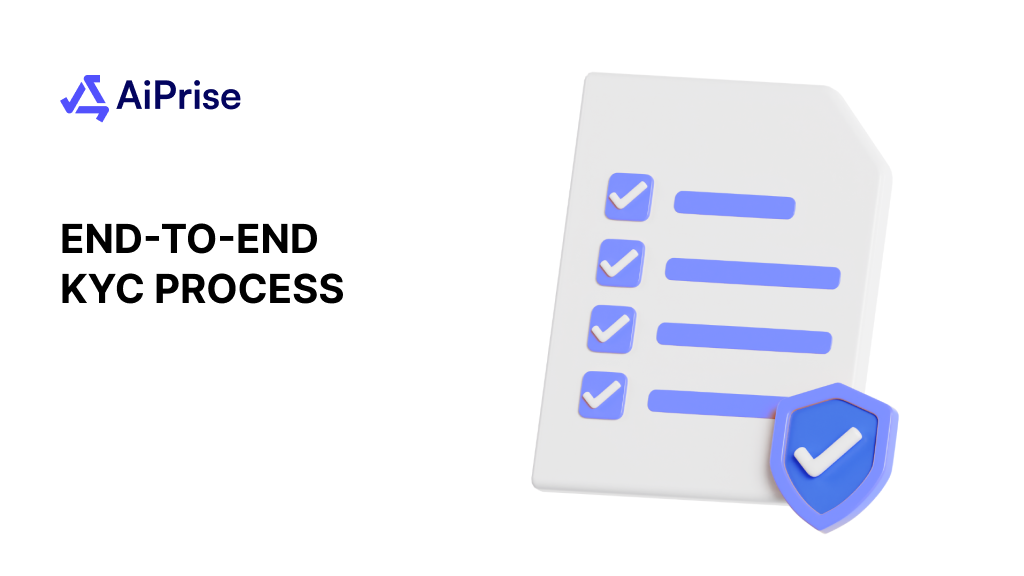

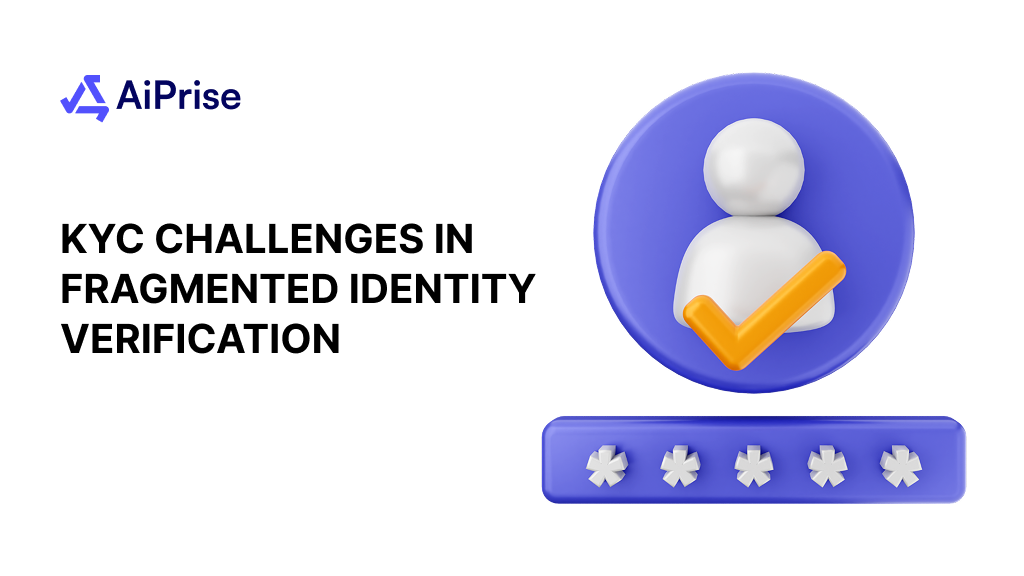
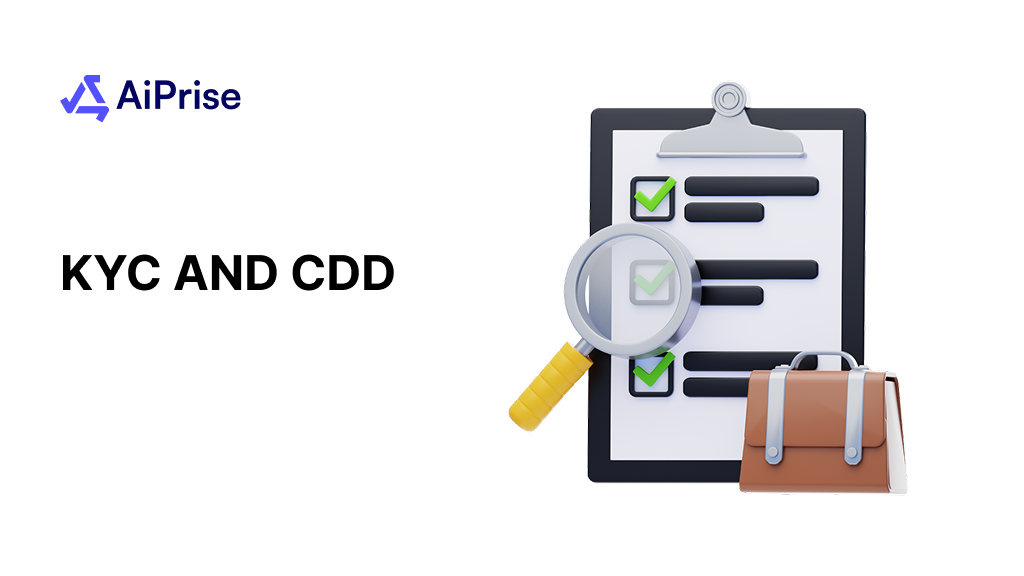








.png)






